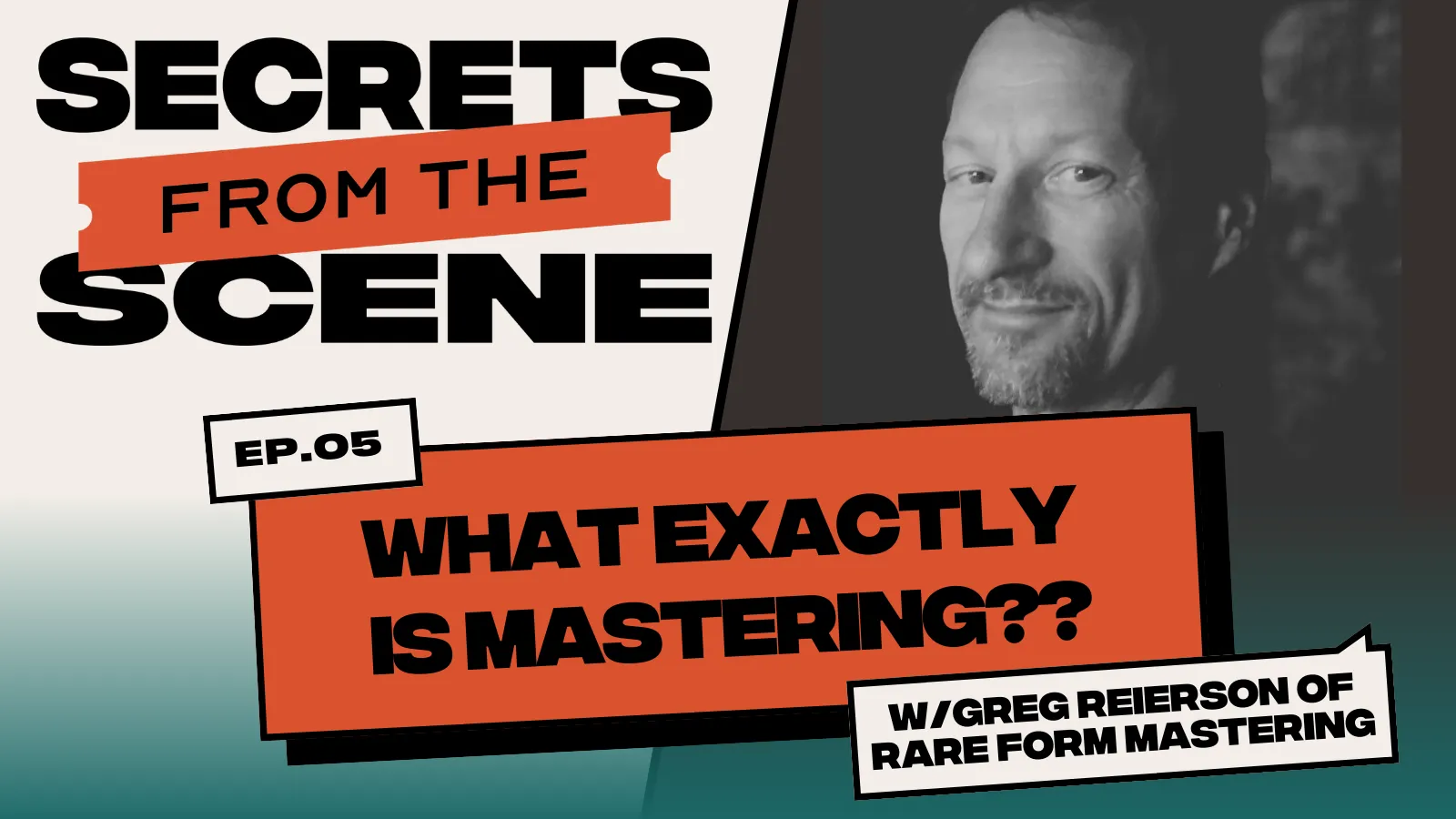Show Notes
Have you ever found yourself questioning exactly what mastering is? Or perhaps you're considering hiring a professional to master your next release? There's a lot of confusion around the "dark art" of mastering, so let me shed some light. In this episode, you'll hear all about the mastering process, why artists work with mastering engineers, what to expect when you get a song mastered, and a whole lot more. You're going to get a solid understanding of what mastering is, what it is NOT, what makes mastering important, and how to effectively work and communicate with a professional mastering engineer.
Many artists consistently misunderstand or misuse the term "mastering." I can't tell you how many times I've been asked to "master" a track, when really what the artist is looking for is primarily "mixing." So let's get down to the details and fully understand what mastering is all about with expert mastering engineer, Greg Reierson. Greg is a veteran of the Minnesota music scene and has mastered over 9000 projects. After this episode, not only will you have a solid grasp on the mastering process and what to expect from it, but you'll also hear stories and insights from one of the most reputable mastering engineers in the Twin Cities.
If mastering has been a little bit of a question mark for you, or you're interested in meeting and getting to know Greg better, this episode is for you!
watch now on YouTube:
Episode Links and Mentions
Connect with the Guest
Connect with Me
Give Feedback
📬 Send me a message: stephen@secretsfromthescene.com
💬 Suggest a guest or topic: podcast@secretsfromthescene.com
🎙️ Brought to you by:
--------------------------------
Thank You
This podcast is made possible by the hard work, expertise, and commitment of my team:
Max Greene and Joey Biehn. I'm forever grateful.
--------------------------------
Theme Music: "Thankful" Courtesy of LUEDVIG

